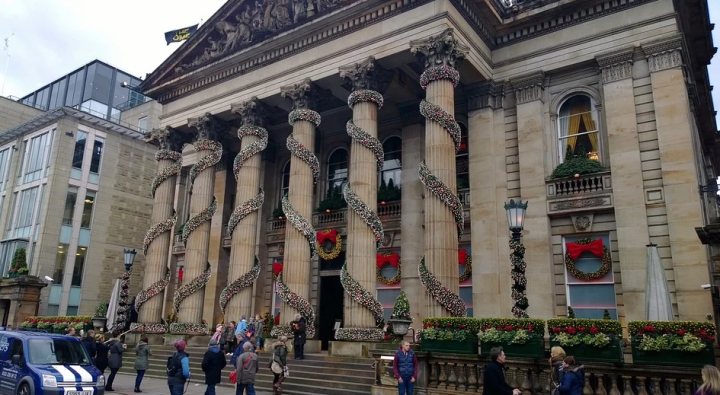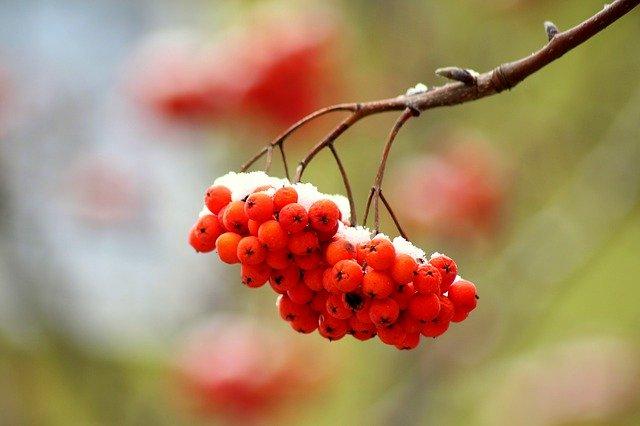Scottish Christmas Traditions
Did you know Christmas was banned in Scotland for over 400 years? Find out more about this and other festive Scottish facts in our handy blog post. Happy Christmas!
'Tis the season to learn more about life in Scotland! The Christmas holidays are now well and truly upon us, so how is the festive season celebrated by people in Scotland?
Whether you're an on-campus postgrad studying here in Edinburgh, or an online student wanting to find out more about Scottish life, we've brought you a list of Scottish Christmas traditions that are sure to get you in the festive spirit.
1. There weren't many Scottish Christmas traditions until 1958
Unfortunately Scotland experienced a bit of a gap in its history of Christmas celebrations...a gap which lasted nearly 400 years!

Before the Reformation in the mid 1550s, Christmas in Scotland had been commemorated each year as a religious feasting day.
However, due to the crisis within the Catholic Church and the subsequent Protestant Reformation across Europe, the Kirk in Scotland became deeply suspicious of anything related to Roman Catholicism. Eventually the Scottish Parliament passed a law in 1640 which made celebrating 'Yule vacations' illegal.
Despite the fact that Charles II (known as the 'Merry Monarch') was restored to the throne in 1660, celebrating Christmas was still deeply frowned upon in Scotland for centuries. In fact, the 25th December only became a public holiday in Scotland in 1958. That means there are plenty of Scottish people still alive today who remember going to work on Christmas day!
2. Baking Yule bread
Yule bread is a tradition which appears to have originated on the islands of Shetland and Orkney. This tasty Christmas bake is made with caraway seeds and plaited into a three thread loaf.
The loaf is turned into a circle which represents the Sun. Meanwhile, there's a pagan element to this tradition as the caraway seeds are said to relate to Scottish folklore regarding Sìdhe and the spirits of Winter.
You can read more about these symbols and find a recipe for Yule bread via the website below.
Some sources also claim that it is traditional for the baker to hide a trinket within the bread (much like hiding a coin in a Christmas pudding). Whoever finds the trinket will be blessed with good luck for a year!

3. Burning rowan twigs
Many Scottish families still keep a long-held tradition in which people burn a twig from a rowan tree during the festive season. What's the point of this particular ritual? Apparently burning rowan is used as a way to clear away bad feelings of jealousy or mistrust between family, friends and neighbours.
So if you're having to sit through a family argument at the dinner table this Christmas, make sure to keep a rowan twig handy!
4. First-footing
A 'first-footer' is a term used to describe the first person to show up at your house on Christmas Day (you might be calling them a different name in your head as you attempt to prepare the turkey, get ready and roast the potatoes all at the same time).
First-footers traditionally arrive and bless their hosts by bringing a range of treats including whisky, salt and bread. It's also traditional for first-footers to offer 'black buns' to their hosts - these buns are made from a delicious mix of raisins, currants, almonds, citrus peel, allspice, ginger and cinnamon - all topped off with a layer of pastry.
5. Anything else...?
Scottish people celebrate Christmas by drawing on plenty of other traditions found across countries in Europe and the West. In Scotland, you'll see Christmas trees lighting up people's houses and wreaths on the front door. People put presents under the tree and leave mince pies for Father Christmas on Christmas Eve. They might also leave a nice tasty carrot for Rudolph the reindeer...
Christmas dinner usually consists of roast turkey, roast potatoes, roast parsnips, stuffing, pigs in blankets (sausages wrapped in bacon), bread sauce, Brussels sprouts, gravy and...our mouths are starting to water!
Once Christmas has been and gone, Scots everywhere will get ready to celebrate Hogmanay (Scottish New Year). You can find out more about Hogmanay traditions in the article below.
Whether you're celebrating Christmas or not, we wish you an enjoyable December and a very happy New Year!
Related Links
Edinburgh Graduations - the real story behind the 'Geneva bonnet'


